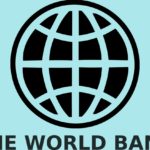The World Bank has painted a bleak economic outlook for Pakistan for the fiscal year 2023, with several factors contributing to the expected slow growth of only 0.4 percent.
These include tight fiscal policy, impacts from floods, high inflation, high energy prices, and import controls. As a result of the floods, agricultural output is expected to contract, which has not happened for over two decades, the World Bank noted in Pakistan Economic Update for April 2023 released on Tuesday.
READ MORE: Pakistan exports plummet by 10% during July – March 2022-2023
It said the industrial sector is also expected to shrink due to supply chain disruptions, weakened confidence, higher borrowing costs, and fuel prices. The impact of lower activity is also expected to spill over to the wholesale and transportation services sectors, which account for more than half of services output.
Unfortunately, due to the lack of fiscal space, there may not be enough resources available for public transfers to mitigate income losses or high inflation, which is expected to result in an increase in the lower middle-income poverty rate to 37.2 percent in FY23.
While output growth is expected to recover gradually in FY24 and FY25, it is expected to remain below potential due to low foreign reserves and import controls, which will continue to curtail growth. Overall, it appears that the economy will face significant challenges in the coming year, with a slow recovery expected in the years to come.
READ MORE: Khunjerab Pass reopens for Pakistan, China trade
The World Bank has projected limited progress towards poverty reduction in the coming years due to slow growth and high inflation. The lower middle income poverty rate is expected to decline marginally from 37.2 percent in FY23 to 36.6 percent in FY25.
However, any further economic instability or shocks would further diminish household incomes and likely increase poverty. The impact of these factors on poverty will vary depending on which sectors are most affected. Agriculture is an important source of income for households and poverty outcomes are sensitive to adverse climatic events.
Inflation also has a significant impact on households, with the poorest 10 percent of households spending a much higher share of their income on food than the richest 10 percent of households. As a result, food inflation is particularly detrimental to the well-being of poor households.
READ MORE: Pakistan rejects reports of trade relations with Israel
According to the World Bank, implementing macroeconomic and structural reforms as agreed under the IMF-EFF program is crucial to restoring macro-stability and confidence and avoiding a public debt crisis. This will require sustained and deepened reforms, as well as new external financing flows over the medium-term.
The World Bank recommends a bold reform strategy that includes measures to keep the exchange rate market-determined, increase domestic revenue mobilization, curtail and improve the quality of public expenditures, undertake structural reforms to improve investment, competitiveness, and productivity, and take urgent measures to improve the financial viability of the energy sector.
The success of these reforms will require strong political ownership and sustained implementation. The projections presented by the World Bank assume effective implementation of these reforms and the securing of external financing from regional partners.
According to the World Bank, inflation in FY23 is expected to surge to an average of 29.5 percent due to the pass-through of exchange rates to domestic prices and an increase in international oil prices. The increase in domestic energy prices, as part of the stabilization program, will add to inflationary pressures directly and through second-round effects.
READ MORE: Pakistan’s headline inflation hit record high at 35.4% in March 2023
In response to rising inflation, the government has already adjusted the policy rate to 20 percent. The inflation outlook suggests that real interest rates will remain in negative territory, which may require further policy tightening in the near term. Rising energy prices will also have an impact on consumption. However, inflation is expected to gradually moderate in FY24-FY25 as global inflationary pressures dissipate.
The World Bank observed that the fiscal deficit, excluding grants, is expected to decrease to 6.7 percent of GDP in FY23 and continue to gradually narrow over the medium term due to revenue mobilization measures, particularly GST harmonization and personal income tax reform. The fiscal consolidation will also require rationalization of expenditures, including reducing costly and regressive energy subsidies. The continuation of these fiscal consolidation measures over the medium term is crucial to maintaining fiscal and debt sustainability.
